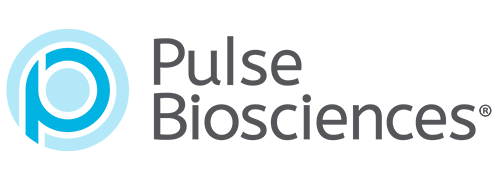News
Multicenter Study Aims to Demonstrate NPS as a Preferred Method for Skin Lesion Removal
A previously published study of NPS in the treatment of seborrheic keratosis skin lesions in 58 patients provided the first human evidence that NPS’ mechanism of action is well suited to target a broad range of difficult-to-treat benign and non-benign skin lesions by targeting the cellular structures of lesions, while sparing the surrounding non-cellular tissue of the dermal layer of skin. The sparing of surrounding non-cellular skin tissues enables the treatment of deeper cellular structures in the skin such as the sebaceous glands that cause SH lesions.
According to one of the study’s principal investigators, Dr.
Sebaceous Hyperplasia is a common benign skin condition caused by cellular sebaceous glands in the deeper dermal layer of the skin that become enlarged with an oily liquid called sebum, which creates unsightly bulges, or lesions on the surface of the skin. They present as single or multiple bulges that are yellowish, shiny, small papules or bumps with a depressed center and a yellow or white outer rim. If the oily facial bumps are unsightly or embarrassing, patients often choose to have them treated for the benefit of improved skin appearance. Sebaceous hyperplasia is estimated to affect 1% of the healthy U.S. population.
Sebaceous Hyperplasia Study Design
The prospective multicenter study of the Pulse Biosciences NPS device in
the treatment of SH is expected to enroll up to a total of sixty (60)
patients at five leading medical centers across
“We are pleased to begin the next clinical study of our Nano-Pulse
Stimulation technology for the treatment of Sebaceous Hyperplasia,” said
About Sebaceous Hyperplasia
Sebaceous Hyperplasia (SH) occurs when the sebaceous glands, which are attached to hair follicles all over the body, become enlarged with trapped sebum. This creates small, shiny, yellowish lesions or bumps, usually between 2 and 4 millimeters wide, on the skin. Sebaceous Hyperplasia typically appears on the face, especially the forehead and nose, the back, groin, armpits and shoulders. The bumps are harmless and painless, but some people elect to treat them for cosmetic reasons. Sebaceous hyperplasia is most common in middle-aged or older people, particularly those with fair skin who have had a lot sun exposure. There is currently no cure for sebaceous hyperplasia. Some medications, such as retinol or oral isotretinoin, and home remedies may reduce the appearance of bumps. Various professional methods such as chemical peels, cryotherapy, laser therapy and electocautery are available, but a few sessions or applications are often required for full removal and prevention of rapid recurrence. These modalities are also associated with a risk of skin discoloration in the treated area.
About
Pulse Biosciences is a publicly listed clinical stage electroceutical company pursuing multiple clinical applications of its proprietary Nano-Pulse Stimulation technology. Nano-Pulse Stimulation (NPS) is a non-thermal, precise, focal tissue treatment technology comprised of nanosecond (billionth of a second) range pulsed electric fields that directly affect the cell membrane and intracellular structures and initiates cell death in treated cells. The initiation of cell death by NPS results in a minimal inflammatory response, which improves healing outcomes and supports the replacement of treated tissue cells with healthy tissue cells. NPS’ unique mechanism of action to initiate cell death has the potential to significantly benefit patients for multiple medical applications in dermatology, immune-oncology, and in other unique tissue targets. In cancerous lesions, NPS has been shown in preclinical models to induce immunogenic cell death (ICD), which exposes the unique antigens of the treated cells to the immune system and enrolls immune system cells, such as cytotoxic T-cells to mount an adaptive immune response. More information is available at www.pulsebiosciences.com.
Forward-Looking Statements
All statements in this press release that are not historical are forward-looking statements, including, among other things, statements relating to Pulse Biosciences’ expectations regarding the mechanism of action of NPS treatments, current and planned future clinical studies, other matters related to its pipeline of product candidates, future financial performance, regulatory clearance and the timing of FDA filings or approvals, and other future events. These statements are not historical facts but rather are based on Pulse Biosciences’ current expectations, estimates, and projections regarding Pulse Biosciences’ business, operations and other similar or related factors. Words such as “may,” “will,” “could,” “would,” “should,” “anticipate,” “predict,” “potential,” “continue,” “expects,” “intends,” “plans,” “projects,” “believes,” “estimates,” and other similar or related expressions are used to identify these forward-looking statements, although not all forward-looking statements contain these words. You should not place undue reliance on forward-looking statements because they involve known and unknown risks, uncertainties, and assumptions that are difficult or impossible to predict and, in some cases, beyond Pulse Biosciences’ control. Actual results may differ materially from those in the forward-looking statements as a result of a number of factors, including those described in Pulse Biosciences’ filings with the Securities and Exchange Commission. Pulse Biosciences undertakes no obligation to revise or update information in this release to reflect events or circumstances in the future, even if new information becomes available.
Pulse Biosciences’ Nano-Pulse Stimulation (NPS) is an investigational use therapy.
View source version on businesswire.com: https://www.businesswire.com/news/home/20180710006001/en/
Source:
Investors:
Pulse Biosciences, Inc.
Brian Dow
Sr.
Vice President and Chief Financial Officer
IR@pulsebiosciences.com
or
Solebury
Trout
Gitanjali Jain Ogawa, 646-378-2949
gogawa@troutgroup.com
or
Media:
Tosk
Communications
Nadine D. Tosk, 504-453-8344
nadinepr@gmail.com
